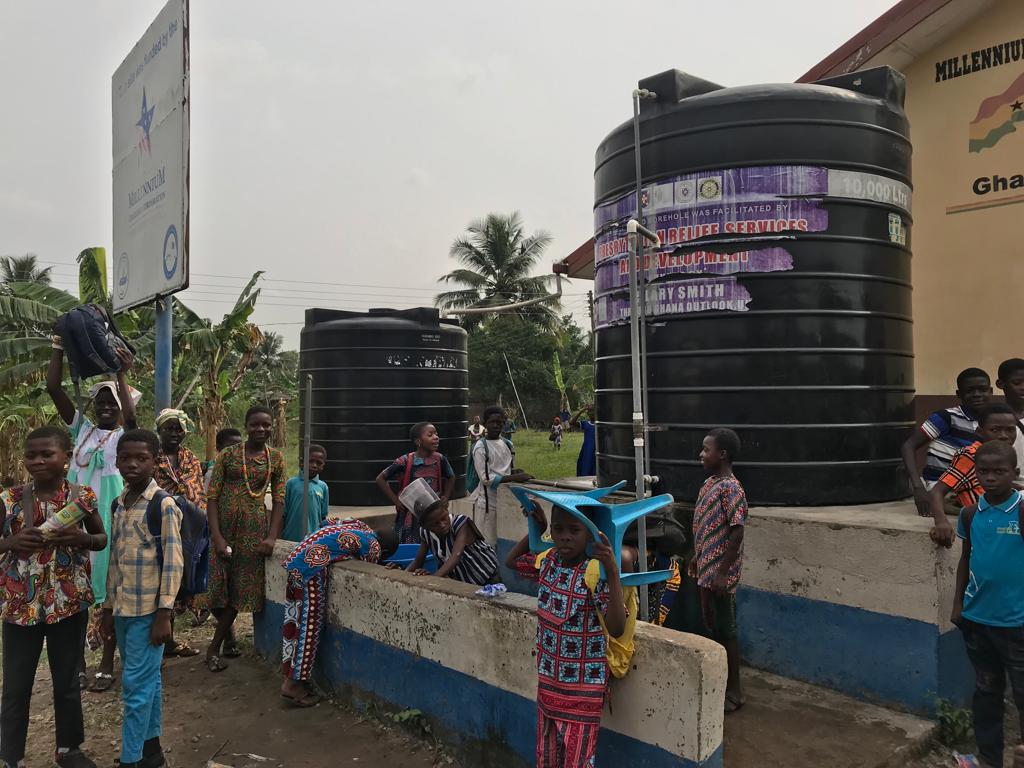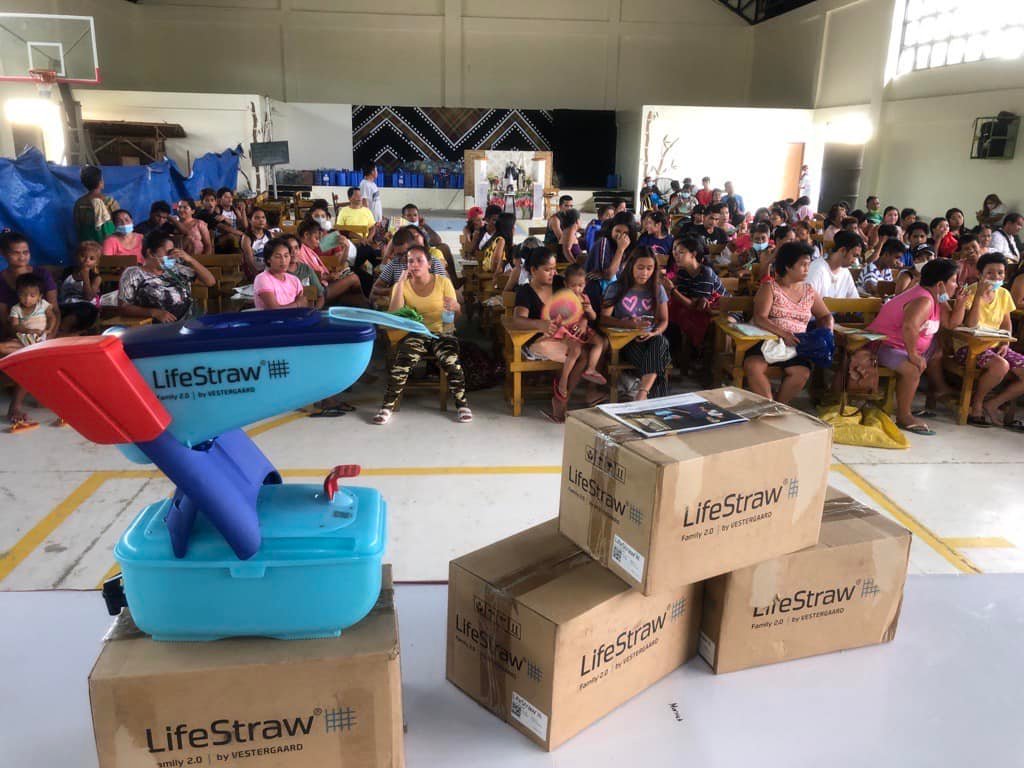Access to safe water, sanitation services and hygiene education are basic human needs for health and wellbeing. Despite it being declared a human right and one of the United Nation’s sustainable development goals, there are still over 2 billion people around the world without access to safe drinking water.
Almost half the world’s population (3.6 billion people) live without safely managed sanitation—resulting in exposure untreated human waste. A third of the world (2.3 billion people) do not have basic handwashing services, such as soap, at home. And there are at least 1.4 million deaths, many of them children, that result from preventable water and sanitation related causes.
These are some of the water-related issues addressed at the United Nations Water Conference in March 2023, the first of its kind in nearly 50 years. Over 10,000 participants attended the conference to find actionable ways to addresses the worldwide water crisis and us get closer to equitable access to water for all.
Clean water, sanitation and hygiene education is also a Rotary priority. There are lots of ways that Rotary clubs and individuals are already supporting the cause, from sending an Aquabox to go to a disaster-hit community, to raising funds for charities like WaterAid. This month we are sharing different stories from across the world to inspire Rotary clubs and individuals in Yorkshire and North Lincolnshire to tackle water, sanitation and hygiene issues.
Ghana Outlook: Building schools, boreholes and more for community health
What originally started as an international project for a group of Scouts, has turned out to be a decades long collaboration to improve issues affecting daily life in Ghana. Since 1998, the Yorkshire-based charity, Ghana Outlook, has been helping communities with education, health, water access, hygiene and other sustainable projects.
Richard Galliford is a trustee and founding member of Ghana Outlook as well as a current member of Stainborough Rotary. The initial idea for what became Ghana Outlook, was for a group of Scout’s in Penistone to visit Ghana to help build a school and participate in a cultural exchange.
From 1998 to 2013, they built 10 schools with the help of local organisations and communities. During that time, they became an official charity and opened opportunities to the wider community to get involved. When rising costs and logistical issues started to become major barriers, they began to focus on other issues related to community health and development.
More recently, Ghana Outlook has focused many of their projects on providing access to safe water, sanitation and community farming. They have helped implement boreholes, each costing roughly £4,000. They have installed dry pit latrines at schools, reducing the risk of preventable diseases and other dangers, such as snake bites, associated with defecating outdoors. Their community farming initiative provides up to 20 women with necessary tools, seeds, fencing and training to make their farms a source of food and income for their families. In 2015, they funded and installed the first ever sand dam in West Africa. The sand dam provides water through the long dry season and also extends the growing season to land adjacent to the dam.

Ghana Outlook develops projects based on community needs from research and recommendations from a group of trusted NGOs in Ghana. Ideas for projects are fully discussed with the communities and representatives, planned and monitored. In many cases, there also maintenance plans, funded by the communities themselves, in place to cover the cost of repairs.
Though small, the charity is making a big positive impact on daily life. Thousands of people now have safe drinking water available to them just a short distance from their home, meaning they can focus on education or work and not just on finding water. Roughly 3,500 people are educated each day in schools set up by Ghana Outlook. And with each season, more women and their families are benefitting from fresh food grown at home.
In February, a group of mostly Rotary members went to Ghana to visit the communities where some of the charity’s work is taking place. All five of the current trustees have close ties with Rotary (four are members and one was a long-time member). Richard is also a two-time Paul Harris Fellow and MBE for his work with Ghana Outlook. He says that having Rotary members as trustees is complementary as they are just a group of like-minded people trying to do good things in the world.
Rotary Clubs Water Projects: Providing personal and community water purifiers
In South Wales, Rotary members have rallied behind a particular solution to help communities around the world access clean water. LifeStraw is a brand of portable water filters and purifiers that remove almost all bacteria, microplastics and parasites—making water safer to drink by reducing the risk of disease and illness.
Originally developed to help people living in areas where clean drinking water is scarce, they have also been distributed in humanitarian crises. The personal purifier can filter up to 4,000 litres of water, enough for one person for three years. The biggest model can filter up to 100,000 litres, providing clean water for whole families and communities.
In 2005, a member of Brynmawr Rotary Club read about LifeStraw in a magazine. After contacting the manufacturers and learning more about the products, the club decided to act. They set up what is now the Rotary Clubs Water Projects, a registered charity run by Rotary members from various clubs. The charity exists to raise funds to support the distribution of LifeStraw water filters for use by individuals, families and communities in areas with poor water quality. They also work with other charities to support the provision of improved sanitation in developing countries.

By partnering with the manufacturer, distributors and other Rotary clubs, Rotary Clubs Water Projects have been able to send purifiers all over the world. In October 2022, when heavy rains triggered flash floods across Pakistan whole communities were destroyed. The charity was able to purchase 10 of the biggest LifeStraw units, each of which can provide safe drinking water for up to 400 people per day. Earlier in the year, they provided filters to communities in Baybay City, Philippines after a deadly tropical cyclone hit the country in April 2022.
Over the years, their work through one focused approach has helped dozens of communities get immediate access to clean water. Though not a permanent solution, the charity’s efforts will no doubt have saved many people from preventable diseases, illnesses, and even possibly from death, with this simple solution.
Environmental Sustainability Rotarian Action Group (ESRAG): Creating cohesion for actionable change
Environmental Sustainability Rotary Action Group (ESRAG) was formed to empower Rotary members worldwide to take environmental action. The group provides expertise, information and resources for clubs and communities so they can implement sustainable and impactful environmental projects if their own.
Though water, sanitation and hygiene are not a specific cause for the group, the projects it does support can have a positive impact on water related issues. The group supports projects with a focus on biodiversity, circular economy, climate, food systems, pollution and sustainable living—all of which link to clean water.
Using the theme of biodiversity as an example, having healthy marine forests free of pollution (such as human waste) can help capture carbon and slow sea-level rise and storm damage. Indigenous plants help capture water for aquifers, keeping soil fertile and preventing erosion which can end up harming communities. Unpolluted watersheds protect drinking water. In so many ways, our environmental actions can affect our ability to access clean water.
Through ESRAG support, projects like Cleaning the Rivers of the World and Philippine students restoring watersheds have taken place—creating safer access to water for people and whole ecosystems. With droughts leading to water scarcity, and most natural disasters now being water related, ESRAG’s work to limit climate change is another way Rotary is doing its part. The more we look, the clearer the link is between healthy environments and access to clean water, sanitation and hygiene. The better we take care of the environment, the healthier our communities will be.
We have a long way to go
The water crisis goes beyond having equitable access to safe drinking water, sanitation and hygiene services. It also plays a role in forced migration, conflicts, and climate change. According to United Nations, 40% of the world’s population are affected by water scarcity, agriculture accounts for nearly 70% of water usage and more than 90% of disasters are water related. By 2050, human demand for freshwater is projected to increase by more than 40%.
Water, sanitation and hygiene isn’t a stand-alone issue. It is also linked to other UN sustainable development goals and Rotary causes such as good health, poverty reduction, quality education, economic development and environmental sustainability. When people have access to clean water and sanitation services, illness and deaths from preventable illnesses decrease, people stay healthier and children attend school more regularly. It also means that less time is spent on finding water and more time on activities that can help families and communities socially and economically.
It’s true that big collaborative action across countries and industries is necessary, but little actions count as well. There is still a long way to go to address these causes, but we know that even small contributions can help whole communities.
Rebecca A Mendoza is a freelance writer and member of York Rotary. You can learn more about her work at www.rebeccaamendoza.com